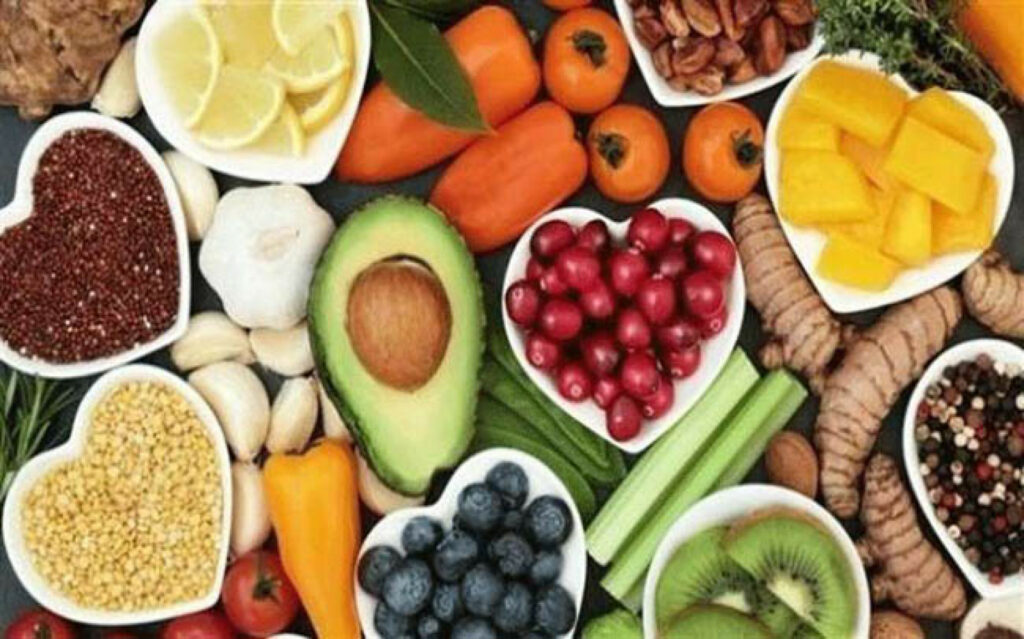Introduction
Wrinkles are a natural part of the aging process, but certain lifestyle factors, including diet, can influence their development. The foods we eat play a significant role in skin health, and consuming the wrong types of foods can accelerate the formation of wrinkles. In this comprehensive guide, we will explore 11 common foods that have been linked to increased wrinkle formation. By understanding the mechanisms behind their effects on the skin and making informed dietary choices, you can better protect your skin and promote a more youthful appearance.
The Science Behind Wrinkle Formation
Understanding Wrinkles
Explanation of how wrinkles develop as a result of intrinsic and extrinsic aging factors, including collagen degradation, elastin loss, and oxidative stress.
Role of Diet
Overview of the impact of diet on skin health and aging, highlighting the importance of consuming nutrient-rich foods to support collagen synthesis and protect against oxidative damage.
Foods That Can Accelerate Wrinkle Development
Sugar
Exploration of how high-sugar diets can lead to glycation, a process that damages collagen and accelerates skin aging, resulting in wrinkles and sagging.
Processed Meats
Discussion of the adverse effects of processed meats, which contain advanced glycation end products (AGEs) that can contribute to collagen breakdown and wrinkle formation.
Fried Foods
Examination of the role of fried foods in promoting inflammation and oxidative stress, which can impair skin elasticity and increase the risk of wrinkles.
Alcohol
Analysis of how excessive alcohol consumption can dehydrate the skin, decrease collagen production, and exacerbate the appearance of fine lines and wrinkles.
Sodas and Sugary Drinks
Explanation of the detrimental effects of sugary beverages on skin health, including increased inflammation, insulin resistance, and accelerated aging.
High-Glycemic Index Foods
Overview of how high-glycemic index foods, such as white bread, rice, and pasta, can spike blood sugar levels and contribute to glycation-induced skin aging.
Dairy Products
Discussion of the potential link between dairy consumption and acne, which can exacerbate skin inflammation and contribute to premature wrinkle formation.
Trans Fats
Examination of the adverse effects of trans fats found in processed foods and baked goods, which can promote inflammation and compromise skin barrier function.
Excessive Salt
Analysis of how a high-sodium diet can lead to water retention, dehydration, and loss of skin elasticity, ultimately contributing to the development of wrinkles.
Caffeine
Exploration of the potential dehydrating effects of caffeine, which can lead to dryness and dullness in the skin, making wrinkles more noticeable.
Artificial Sweeteners
Discussion of the potential impact of artificial sweeteners on gut health and inflammation, which can indirectly affect skin aging and wrinkle formation.
Choosing Skin-Friendly Alternatives
Anti-Aging Foods
Introduction to nutrient-rich foods that support skin health and may help prevent wrinkle formation, including fruits, vegetables, lean proteins, and healthy fats.
Hydration
Emphasis on the importance of hydration for skin health and wrinkle prevention, and the benefits of drinking water and herbal teas for maintaining skin moisture.
Antioxidants
Explanation of how antioxidants found in colorful fruits and vegetables, green tea, and nuts can protect against oxidative damage and promote collagen synthesis.
Omega-3 Fatty Acids
Exploration of the benefits of omega-3 fatty acids found in fatty fish, flaxseeds, and walnuts for reducing inflammation and supporting skin elasticity.
Vitamins and Minerals
Overview of essential vitamins and minerals, such as vitamin C, vitamin E, and zinc, which play a critical role in collagen production and skin repair.
FAQs
Can I reverse the effects of wrinkle-promoting foods by changing my diet?
While dietary changes can help improve overall skin health and may reduce the risk of further wrinkle development, reversing existing wrinkles may require additional interventions such as skincare treatments or cosmetic procedures.
How soon can I expect to see improvements in my skin after changing my diet?
The timeline for seeing improvements in skin health may vary depending on individual factors such as diet, lifestyle, and genetic predisposition. Consistently following a skin-friendly diet and adopting other healthy lifestyle habits can gradually lead to improvements in skin appearance over time.
Are there any specific foods that can directly reduce the appearance of wrinkles?
While no single food can erase wrinkles overnight, consuming a diet rich in antioxidants, vitamins, minerals, and healthy fats can support overall skin health and may help minimize the appearance of wrinkles over time.
Can I still enjoy occasional treats without accelerating wrinkle development?
It’s okay to indulge in occasional treats, but moderation is key. Balancing indulgent foods with nutrient-rich options and following a generally healthy diet can help mitigate the negative effects of occasional indulgences on skin health.
Are there any topical skincare products that can help reduce the appearance of wrinkles caused by diet?
While dietary changes are important for supporting skin health from within, using topical skincare products containing ingredients like retinoids, antioxidants, and peptides can complement dietary efforts and help improve the appearance of wrinkles.
Will drinking more water help reduce wrinkles caused by dehydration
Staying hydrated is essential for maintaining skin moisture and elasticity, but drinking water alone may not be sufficient to reverse existing wrinkles caused by dehydration. However, proper hydration can support overall skin health and may help prevent further wrinkle development.

